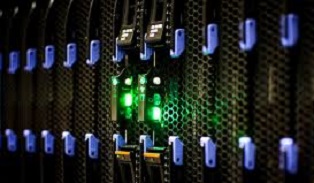The United States (US) Department of Labor today introduced Artificial Intelligence (AI) principles to be followed by AI developers and employers for the well-being workers.
Labeled, ‘Department of Labor’s Artificial Intelligence and Worker Well-being: Principles for Developers and Employers;, the new set of principles will applicable to all sectors. “These Principles will create a roadmap for developers and employers on how to harness AI technologies for their businesses while ensuring workers benefit from new opportunities created by AI and are protected from its potential harms,” the Department stated.
“The precise scope and nature of how AI will change the workplace remains uncertain. AI can positively augment work by replacing and automating repetitive tasks or assisting with routine decisions, which may reduce the burden on workers and allow them to better perform other responsibilities. Consequently, the introduction of AI-augmented work will create demand for workers to gain new skills and training to learn how to use AI in their day-to-day work.”
“AI will also continue creating new jobs, including those focused on the development, deployment, and human oversight of AI. But AI-augmented work also poses risks if workers no longer have autonomy and direction over their work or their job quality declines. The risks of AI for workers are greater if it undermines workers’ rights, embeds bias and discrimination in decision-making processes, or makes consequential workplace decisions without transparency, human oversight and review. There are also risks that workers will be displaced entirely from their jobs by AI,” it said.
The Labor Department also stated that in recent years, unions and employers have come together to collectively bargain new agreements setting sensible, worker-protective guardrails around the use of AI and automated systems in the workplace.
“In order to provide AI developers and employers across the country with a shared set of guidelines, the Department of Labor developed “Artificial Intelligence and Worker Well-being: Principles for Developers and Employers” as directed by President Biden’s Executive Order on the Safe, Secure, and Trustworthy Development and Use of Artificial Intelligence, with input from workers, unions, researchers, academics, employers, and developers, among others, and through public listening sessions.”
According to the US Labor department, the following Principles apply to the development and deployment of AI systems in the workplace, and should be considered during the whole lifecycle of AI – from design to development, testing, training, deployment and use, oversight, and auditing.
The Principles are applicable to all sectors and intended to be mutually reinforcing, though not all Principles will apply to the same extent in every industry or workplace. The Principles are not intended to be an exhaustive list but instead a guiding framework for businesses. AI developers and employers should review and customize the best practices based on their own context and with input from workers.
The Department’s AI Principles for Developers and Employers include:
• Centering Worker Empowerment: Workers and their representatives, especially those from underserved communities, should be informed of and have genuine input in the design, development, testing, training, use, and oversight of AI systems for use in the workplace.
• Ethically Developing AI: AI systems should be designed, developed, and trained in a way that protects workers.
• Establishing AI Governance and Human Oversight: Organizations should have clear governance systems, procedures, human oversight, and evaluation processes for AI systems for use in the workplace.
• Ensuring Transparency in AI Use: Employers should be transparent with workers and job seekers about the AI systems that are being used in the workplace.
• Protecting Labor and Employment Rights: AI systems should not violate or undermine workers’ right to organize, health and safety rights, wage and hour rights, and anti-discrimination and anti-retaliation protections.
• Using AI to Enable Workers: AI systems should assist, complement, and enable workers, and improve job quality.
• Supporting Workers Impacted by AI: Employers should support or upskill workers during job transitions related to AI.
• Ensuring Responsible Use of Worker Data: Workers’ data collected, used, or created by AI systems should be limited in scope and location, used only to support legitimate business aims, and protected and handled responsibly.

